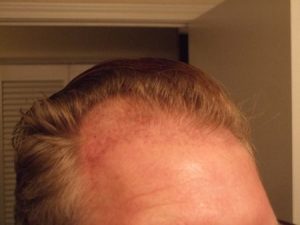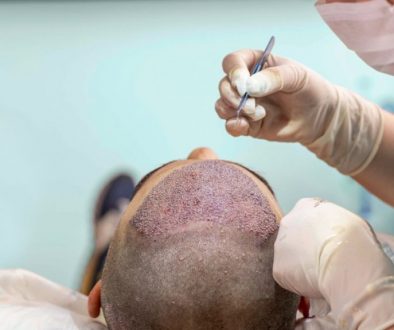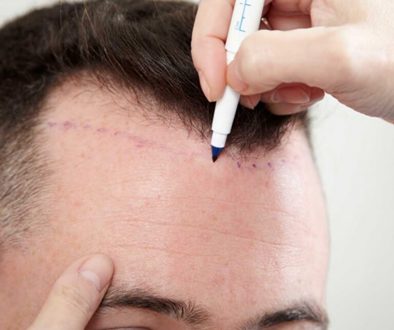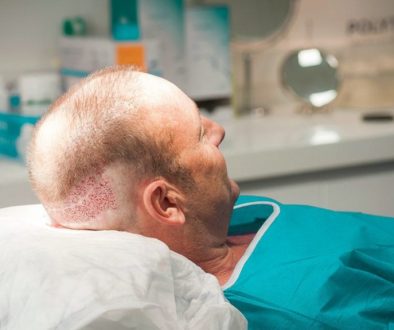Is My Shock Loss Permanent
I am two months post-op from my FUE procedure and I have experienced a great deal of shock loss and now I’m afraid it won’t grow back, is shock loss permanent?
Telogen effluvium or shock loss is a form of short-term hair loss that typically occurs after stress, trauma or a surgical procedure. This type of temporary hair loss is mostly contained on the top of the scalp. However, it can and does occur due to surgical trauma in the donor site regardless of the harvesting technique.
Hair restoration can often lead to telogen eflluvium (shock loss) because of surgical trauma. Both donor harvesting techniques Follicular Unit Excision (formerly known as Follicular Unit Extraction FUE) and Follicular Unit Strip Surgery (FUSS) can cause telogen effluvium (shock loss). Surgical trauma occurs when hairs are transplanted in close proximity to surrounding native hairs. This causes trauma to the hair follicles and subsequently leads to telogen effluvium (shock loss).
The hair life cycle has three phases:
*Anagen (growth phase)
*Catagen (transitional phase)
*Telogen (resting phase)
Everyone has around 5-10% of their hair in the telogen (resting phase) at any given time. However, telogen eflluvium (shock loss) causes an increased amount of hairs to enter the telogen (resting phase) all at once, which causes a massive shed. This causes the appearance of thinning hair or temporary baldness.
Generally, telogen effluvium (shock loss) is a temporary condition that resolves on it’s own. However, there are treatments that can speed up recovery and re-establish the hair follicles normal life cycle. The most common treatments are Rogaine (minoxidil) and low level laser therapy (LLLT), both of these treatments have been shown to kick start hair follicles in to the anagen (growth phase) for a prolonged period of time.
In conclusion, hair lost due to telogen eflluvium (shock loss) grows back generally around 3-6 months after hair transplant surgery. In most cases, all of the hairs return and the normal hair life cycle continues. However, affected miniaturized hairs may not always grow back , but these hairs are already heavily affected by dihydrotestosterone (DHT) and would have likely fallen out on their own without surgery.
Written and published by,
Melvin- Editorial Assistant and Forum Co-Moderator Follow our Social Media Instagram @hairtransplantnetwork1 Facebook, Pintrest, Linkedin and YouTube.




